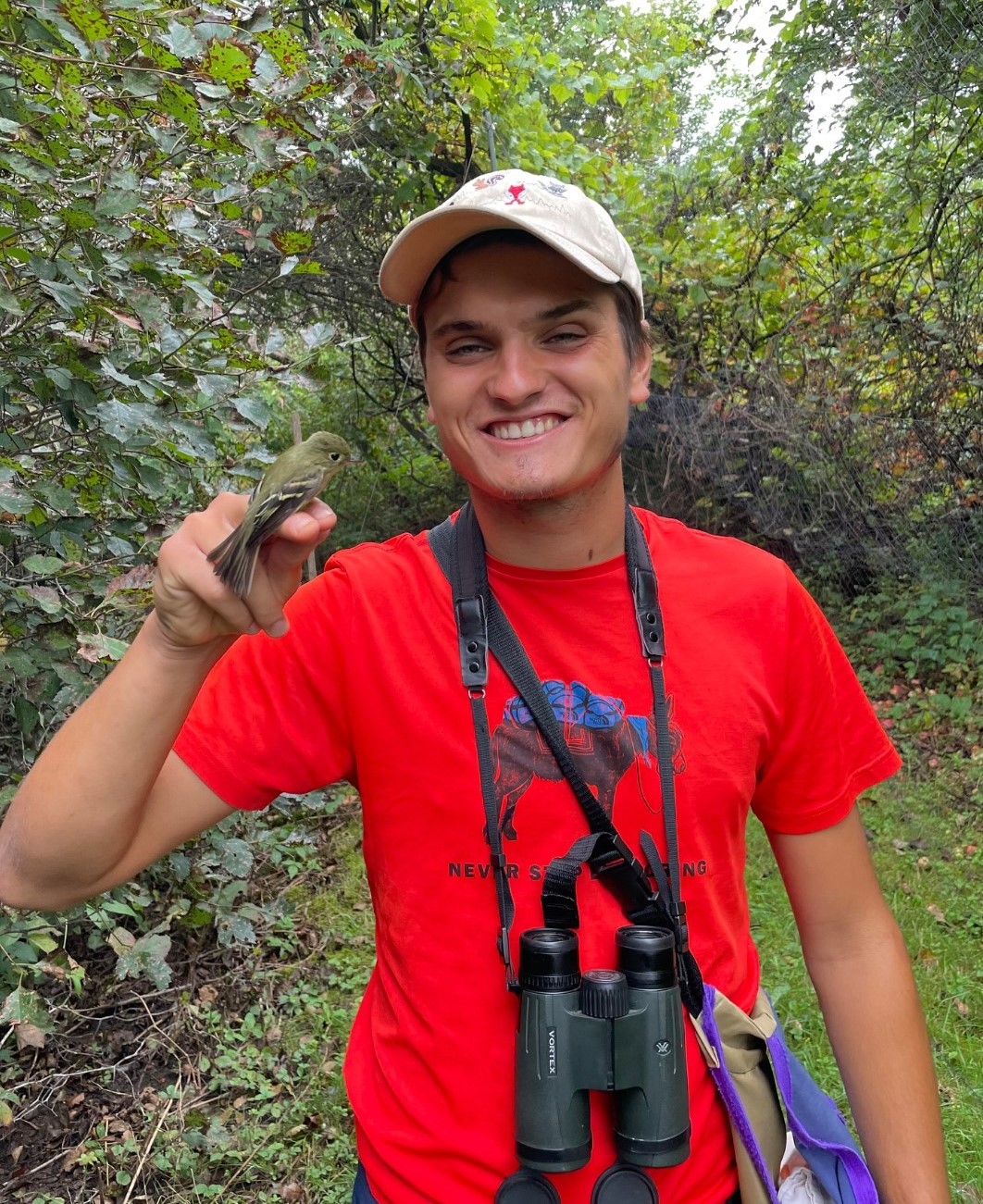In conversation with Jamie Depolla, valedictorian for the Faculty of Agricultural and Environmental Sciences ‘B’ ceremony
"The Mac Campus community is one of inclusivity, kindness and open-mindedness. I have felt loved, encouraged and pushed to do better every day."
In this special series of Q&As, √±±«øºÈ‚Äôs 2024 valedictorians share their insights and perspectives as they reflect on their academic journeys and look back at the moments that defined their time at √±±«øºÈ, from navigating the challenges of entering √±±«øºÈ during the COVID pandemic to finding and fostering a sense of community.
In our final instalment, we feature Jamie Depolla, valedictorian for the Faculty of Agricultural and Environmental Sciences. Depolla, who has earned a BSc (Honours) in Environmental Biology with a specialization in Wildlife Biology and a minor in Field Study, delivered his address at the Agricultural and Environmental Sciences ‘B’ ceremony on Wednesday, June 5, at 3 p.m.
Please note, the answers have been edited for brevity.
 Where do you call home?
Where do you call home?
I was born and raised in Beirut, Lebanon.
Why did you choose √±±«øºÈ?
Three reasons:
- It was cheaper than the U.K.
- I had lived my whole life in a big, bustling city. I yearned for a smaller, close-to-nature environment for my studies. Moving to Macdonald Campus fulfilled my longing for greenery and friendly faces.
- The Wildlife Biology program seemed so cool: lots of fieldwork and opportunities to go abroad!
What were some of your impressions when walking onto campus for the first time?
I was awed by the lush greenery, the beautiful waterfront and the “old” feel of the buildings. It was like entering a movie.
What are some of the highlights of your time at √±±«øºÈ?
There are a million to choose from: partying in the cornfields in first year, taking a dip at Paddle Mac as the sun rose, all my moments as a Frosh leader, living within an Indigenous community in Panama during my Field Study semester, sharing life experiences while winter camping in Mont Tremblant and studying black widows at night in Arizona as part of my Desert Ecology class.
What’s next for you, both short and long term?
Short term: doing research with birds. I’m headed to Bylot Island in the Canadian Arctic this summer and to Pelee Island in Lake Erie this fall.
Long term: I am deeply touched by biodiversity loss and would love to become a conservation biologist. However, I also am highly interested in ecological politics and socioeconomic sustainability.
How has √±±«øºÈ helped prepare you for your next chapter?
I can think critically. Being exposed to so many knowledgeable people with varying opinions on similar topics has really nuanced my own thought processes and allowed me to consider multiple viewpoints before making decisions or judgments. I am more comfortable with the idea of being wrong, because I know an opinion is never fully true.
I feel more skilled socially. I make sure people feel more included in a crowd, I engage in exciting conversations with people I meet for the first time and I nurture healthy relationships with people I disagree with.
Most importantly, Mac Campus made me a better person. I have been exposed to the importance of social justice in a way that would not be easily replicated elsewhere. I want to empathize with people, to understand them, care for them, love them.
Who or what will you miss most?
Who: my friends, without a doubt. They have made me who I am today. My experience at √±±«øºÈ would not have been nearly as extraordinary without them.
What: the incredible feeling of community around me. Four-day parties, late-night group cramming sessions before a midterm, life-changing conversations at 2 a.m., and many more.
The Mac Campus community is one of inclusivity, kindness and open-mindedness. I have felt loved, encouraged and pushed to do better every day. I have experienced the strongest emotions of my life. I have felt alive. I will miss that dearly.